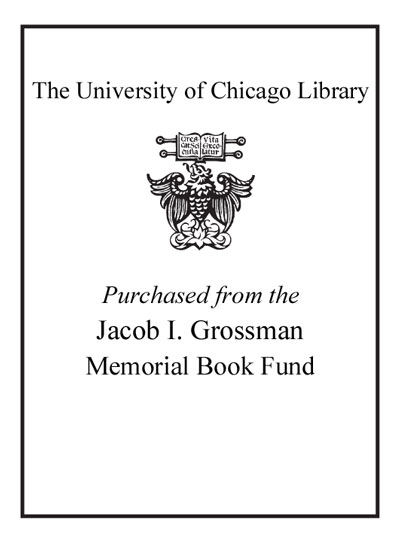The militarisation of peacekeeping in the twenty-first century /
Saved in:
| Author / Creator: | Sloan, James, (Lecturer in international law. |
|---|---|
| Imprint: | Oxford, [England] ; Portland, Or. : Hart Pub., 2011. |
| Description: | xxix, 306 p. ; 24 cm. |
| Language: | English |
| Series: | Studies in international law ; v.35 Studies in international law (Oxford, England) ; v.35. |
| Subject: | |
| Format: | Print Book |
| URL for this record: | http://pi.lib.uchicago.edu/1001/cat/bib/8552015 |
MARC
| LEADER | 00000cam a2200000Ia 4500 | ||
|---|---|---|---|
| 001 | 8552015 | ||
| 003 | ICU | ||
| 005 | 20120217120500.0 | ||
| 008 | 110330s2011 enk b 001 0 eng d | ||
| 016 | 7 | |a 015817443 |2 Uk | |
| 020 | |a 9781849461146 | ||
| 020 | |a 1849461147 | ||
| 035 | |a (OCoLC)711044623 | ||
| 040 | |a BTCTA |b eng |c BTCTA |d YDXCP |d UKMGB |d WCL |d CDX |d BWK |d BWX |d ICU | ||
| 049 | |a CGUA | ||
| 090 | |a XXKZ6376 |b .S566 2011 | ||
| 100 | 1 | |a Sloan, James, |c (Lecturer in international law. |1 http://viaf.org/viaf/219981899/ | |
| 245 | 1 | 4 | |a The militarisation of peacekeeping in the twenty-first century / |c James Sloan. |
| 246 | 3 | |a Militarisation of peacekeeping in the 21st century | |
| 260 | |a Oxford, [England] ; |a Portland, Or. : |b Hart Pub., |c 2011. | ||
| 300 | |a xxix, 306 p. ; |c 24 cm. | ||
| 336 | |a text |b txt |2 rdacontent |0 http://id.loc.gov/vocabulary/contentTypes/txt | ||
| 337 | |a unmediated |b n |2 rdamedia |0 http://id.loc.gov/vocabulary/mediaTypes/n | ||
| 338 | |a volume |b nc |2 rdacarrier |0 http://id.loc.gov/vocabulary/carriers/nc | ||
| 490 | 1 | |a Studies in international law ; |v v.35 | |
| 504 | |a Includes bibliographical references and index. | ||
| 505 | 0 | |a Introduction -- Peacekeeping : the opposite of enforcement? -- The peacekeeping powers of the Security Council and the limitations thereupon -- When peacekeeping and enforcement overlap : twentieth century practice -- When peacekeeping and enforcement overlap : twenty-first century practice : the early operations -- When peacekeeping and enforcement overlap : twenty-first century practice : the later operations -- Conclusions. | |
| 520 | |a "Since the end of the last century, UN peacekeeping has undergone a fundamental and largely unexamined change. Peacekeeping operations, long expected to use force only in self-defence and to act impartially, are now increasingly relied upon by the Security Council as a means to maintain and restore security within a country. The operations are established under Chapter VII of the UN Charter and some are empowered to use 'all necessary measures', language traditionally reserved for enforcement operations. Through a close examination of these twenty-first century peacekeeping operations--including operations in Sierra Leone, the Democratic Republic of the Congo, Liberia, Côte d'Ivoire, Haiti and the Darfur region of the Sudan--the book shows that they are, for the most part, fundamentally ill-suited to the enforcement-type tasks being asked of them. The operations, which are under-funded, under-equipped and whose troops are under-trained, frequently lurch from crisis to crisis. There is scant evidence, some 10 years on, that matters are likely to improve. The book argues that bestowing enforcement-type functions on a peacekeeping operation is misconceived. Such operations are likely to be unsuccessful in their enforcement-type tasks, thereby causing serious damage to the excellent reputation of UN peacekeeping, and the UN more broadly. In addition, because such operations are more likely to be perceived as partial, their ability to carry out traditional (non-forceful) peacekeeping tasks may be impeded. Finally, the Security Council's practice of charging peacekeeping operations with enforcement functions lessens the pressure on the Council to work to establish genuine enforcement operations - ie, operations that are considerably better suited to restoring peace and security"--Provided by publisher. | ||
| 610 | 2 | 0 | |a United Nations |x Peacekeeping forces. |1 http://viaf.org/viaf/151123416/ |
| 610 | 2 | 0 | |a United Nations |x Military policy. |1 http://viaf.org/viaf/316795130/ |
| 650 | 0 | |a Intervention (International law) |0 http://id.loc.gov/authorities/subjects/sh85067543 | |
| 650 | 0 | |a Intervention (International law) |v Case studies. |0 http://id.loc.gov/authorities/subjects/sh2009127486 | |
| 610 | 2 | 7 | |a United Nations. |2 fast |0 http://id.worldcat.org/fast/fst00530351 |0 http://id.worldcat.org/fast/530351 |1 http://viaf.org/viaf/144904638/ |
| 650 | 7 | |a Intervention (International law) |2 fast |0 http://id.worldcat.org/fast/fst00977583 | |
| 650 | 7 | |a Military policy. |2 fast |0 http://id.worldcat.org/fast/fst01021386 | |
| 650 | 7 | |a Peacekeeping forces. |2 fast |0 http://id.worldcat.org/fast/fst01055909 | |
| 655 | 7 | |a Case studies. |2 fast |0 http://id.worldcat.org/fast/fst01423765 | |
| 830 | 0 | |a Studies in international law (Oxford, England) ; |v v.35. | |
| 903 | |a HeVa | ||
| 929 | |a cat | ||
| 999 | f | f | |i a2569c42-7502-57bd-8df1-fbabe70e0a78 |s 5a54f406-2e60-5689-a4c4-eef7d751eaff |
| 928 | |t Library of Congress classification |a XXKZ6376.S566 2011 |l DLL |c DLL-Law |i 1051517 | ||
| 927 | |t Library of Congress classification |a XXKZ6376.S566 2011 |l DLL |c DLL-Law |e GROS |b 088829682 |i 9002596 | ||

